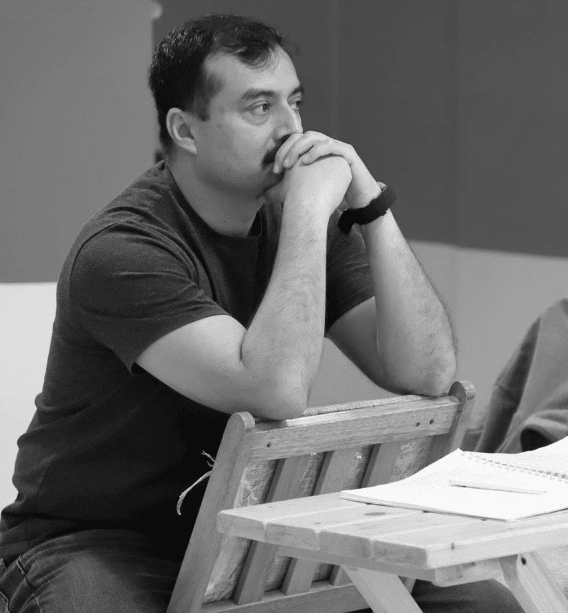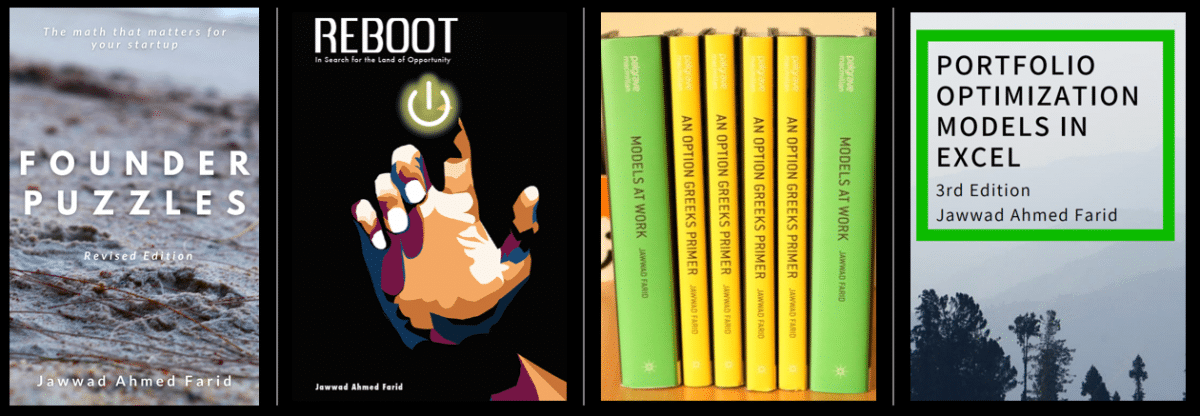
Valuations for Startups
Exits. Acquisitions. Investments. They all double back to the same questions.
How much is your business worth? Are you leaving money on the table?
Is now a good time to sell? How is this answer likely to change in the future?
What are the drivers of that change? If you need a better term sheet two years down the road, what should you focus on today?
As founders, we get market sizing, product development, growth hacking, team building, and scale. Ask the valuation question and we can’t agree on the answer that would close the deal. The reason? Valuation is too close to our combined hearts. What is required is a look through a neutral lens. What really drives value? What is the difference between price and value?
In this short two half day course specially designed for founders, we look through the valuation question from a founder’s lens.
This is a live course on Zoom.
What is this course about? Why is it needed?
The value question. How many ways of answering this question exist? What should you know about investor approaches to valuing a business? Is cash really king?
What drives valuation multiples in a market like Pakistan? What are some of the things you can do to get better multiples? What factors lead to discounts during due diligence, what should you watch out for? How does one balance the debate between value and price?
When it comes to picking up a segment or a pricing model, are there decisions that can impact future value? Using our signature case study driven approach we split the course into two parts. Day one looks at models, mechanics, boundary condition and intuition. Day two focuses on insights and takeaways. Decisions and choices we need to be aware of as founders because they impact future value.
Building up on the successful Financial Modelling for Founders course, Jawwad Farid walks through valuation models and founder questions in two half days.
Designed from a founder perspective, this is a practitioner focused course that covers sharp turns most textbooks ignore. Jawwad raised his first round in 1999 and since then has raised funding for himself as well as helped other raise funding for their dreams. He has also been part of multiple acquisition due diligence teams and brings a balanced perspective to the classroom. Founders as well as investors.
Target Audience and Requirements
A hands-on course that requires some background and exposure to EXCEL. All participants would need a laptop with EXCEL professional installed on it. The course cannot be taken on a phone. Participants need to build and submit models for review.
The course has a pre-requisite and requires familiarity with financial modelling. Complimentary access to our self paced financial modeling course is included for all paid participants.
The intended audience are founders, startups, product managers, financial analysts, and consultants responsible for building growth, valuation and debt servicing models for clients.
What would you need? What should you expect?
This is a remote learning workshop. All participants are required to arrange for a quiet area where they can work undisturbed for the duration of the workshop. Familiarity with EXCEL and financial modelling is required.
The course is limited to a maximum of 20 participants only to ensure individual attention across the duration of the course.
What kind of questions do we ask in this course?
- How much is your startup really worth?
- How do you take conventional models and customize them for the startup world?
- What are the biggest drivers of value in the startup world?
- What decisions impact valuations more than others?
- What are the boundary conditions under which models break down?
- How do investors answer the valuation question in their minds?
By the end of this workshop participants will understand:
- How valuations frameworks are used by founders and investors to evaluate a business
- Decisions, factors, and drivers that impact the range of valuations for a business
- Why are certain businesses more valuable than others? Why are certain markets more attractive than others?
- Tools and metrics they can use to compare businesses and their appeal to investors
Course dates & schedule – Jan 2022
Cohort 2 – January 2022 29th & 30th
| 2 half days. 3 hours instructions
Timings: 4:30 pm to 7:30 pm Pakistan standard time (GMT +5)
Course Fee
Covers the cost of instructions, reading materials and access to online resources. Applicable taxes and deductions will vary and depend on customer location.
Valuations for Startups – Day Planner
Day 1 – Frameworks
We look at four real businesses across four different sectors and compare attractiveness for investment using Lifetime Value (LTV), Customer Acquisition Costs (CAC), short term growth, long term growth and margins.
We compare current and projected valuation results using DCF, multiples and boundary conditions getting comfortable with valuation frameworks for applications on Day Two.
- How do you get better terms? Is that possible? Are some businesses really more valuable than others? What drives the value engine when it comes to valuations?
- Where do valuation multiples come from? How do we reconcile them to startup metrics like LTV, CAC, Customer Churn and Contribution Margin.
- We start with a simplified valuation framework, extend it and apply it to the startup landscape, picking 8 real businesses from 4 different segments in the local ecosystem.
- By the time we end with day one we have a tool that reconciles value, investment criteria, risk and upside potential of an idea.
Day 2 – Applications
Rather than cutting across segments we dig into the Fintech space and compare a payment startup with a digital insurance startup on appeal to investor group and value.
Same framework but an in-depth and deeper dive.
- Given a choice between two equally attractive opportunities, how do we pick one. Can valuation frameworks help us? •Within the Fintech space we look at two competing ideas.
- A payment focused Neobank competing for funding with a Digital Insurance Startup.
- If you could only write one check, which check would you write?
- 5 years later, which business will be more valuable?
- Which metric would drive the investing decision on your part? Would you rather have a small percentage of a small pie, or a large percentage of a small one?
- What defines the pie for your valuation exercise? How about country risk? How do we factor that into our valuation model?
Valuation Concept Samples

About the instructor
Jawwad Farid has been building, implementing risk models and back office systems since 1993. Working with clients on four continents he helps bankers, board members and regulators take a market relevant approach to risk management.
Jawwad is a Fellow Society of Actuaries, (FSA, Schaumburg, IL), holds an MBA from Columbia Business School and is a computer science graduate from FAST NUCES. During the last 29 years, he has worked as an advisor and a consultant in North America, Pakistan, Middle East, Africa, Far East and the United Kingdom.
Jawwad’s expertise includes investment management and risk models.
Jawwad advises due diligence teams on risk assessment and valuation in banking, treasury and insurance sectors, sets up FX and commodity hedging desks, builds fair value models for illiquid securities for FAS 157 disclosures (US$ 600 million portfolio), estimates contingent liability reserves, implements treasury, credit and enterprise risk platforms, designs Economic Capital allocation strategies across business lines and helps life and general insurance clients with regulatory reporting, IFRS 17 implementations, and allocation and bid patterns for 10, 20 and 30 year bonds, ALM mismatch and fixed income portfolio gap reduction.
Jawwad is an adjunct faculty member at the SP Jain Global School of Management in Dubai and Singapore as well as at IBA, Karachi, where he teaches Fintech, Venture Capital, Risk Management, Derivative Pricing, Treasury and Portfolio Management. He has taught as an adjunct professor since 1995 and is consistently rated as a practical hands-on market relevant instructor by students and participants in Bangkok, Kula Lumpur, Singapore, Dubai, Abu Dhabi, Nairobi, Bahrain, Doha, New York and Karachi.
Jawwad is the author of 5 books. The latest is Founder Puzzles. Earlier titles include Models at Work, Option Greeks Primer, Portfolio Optimization Models and Reboot.

You can learn more about Jawwad at:
